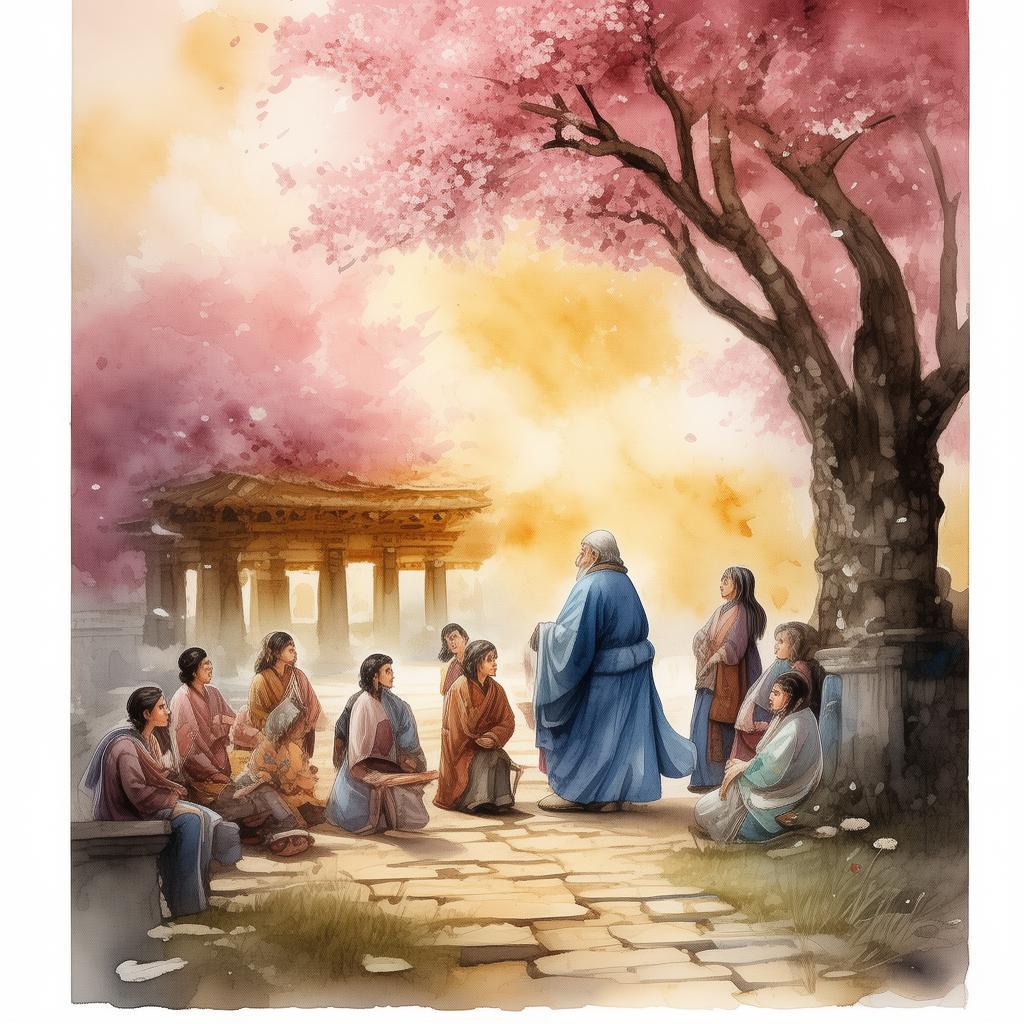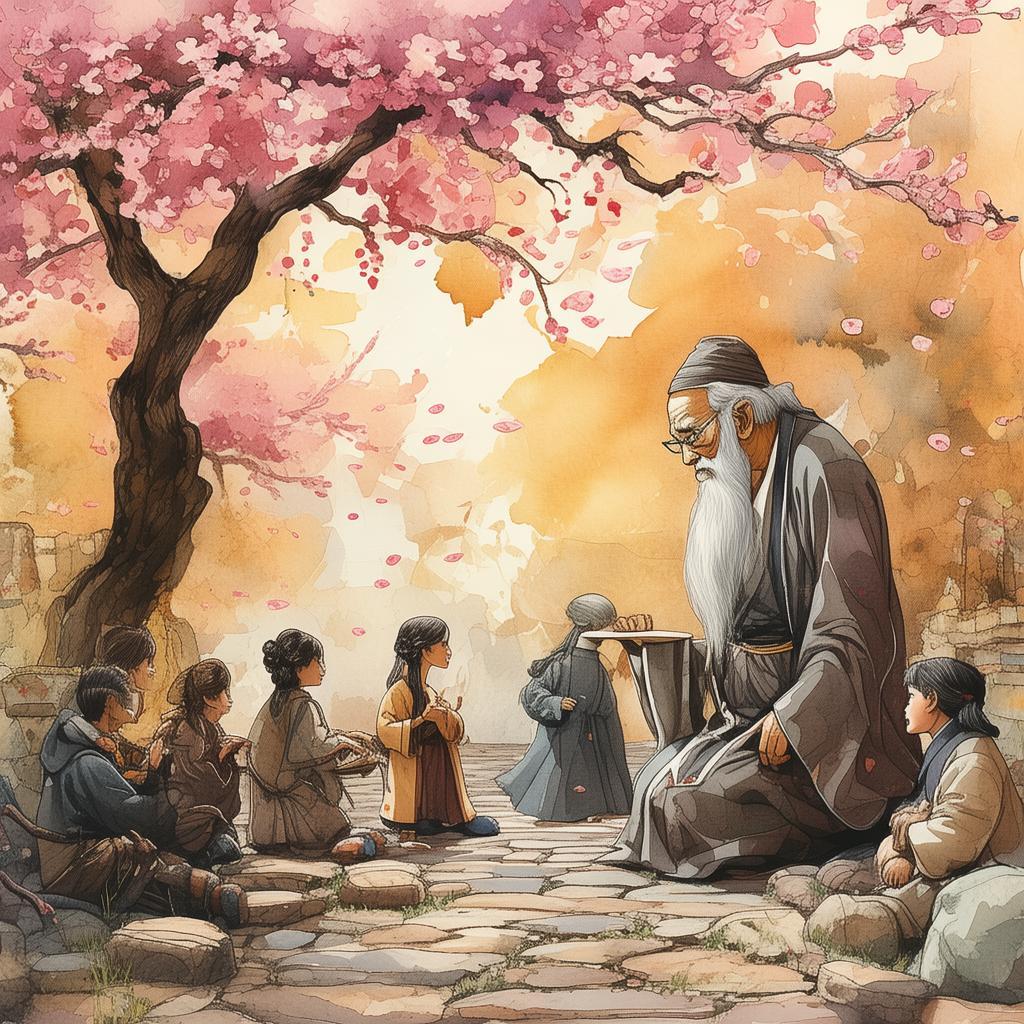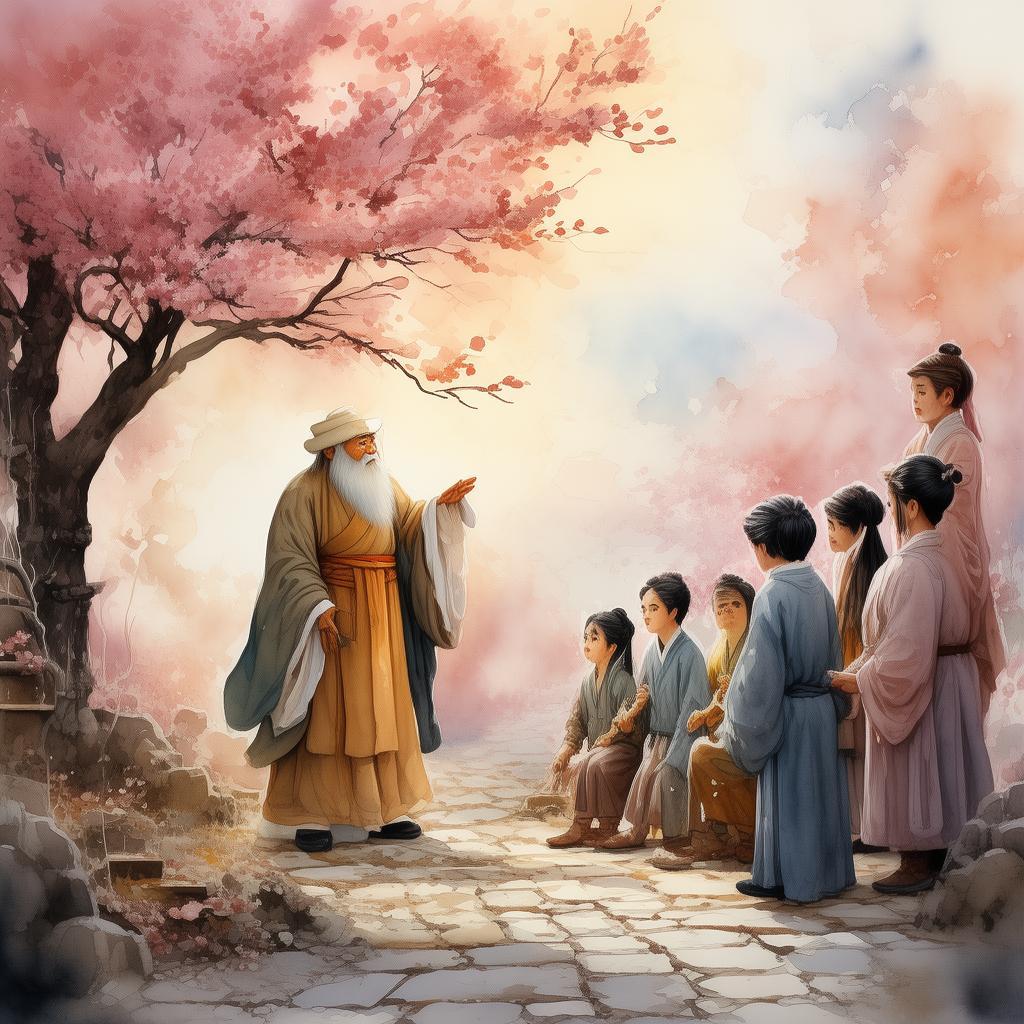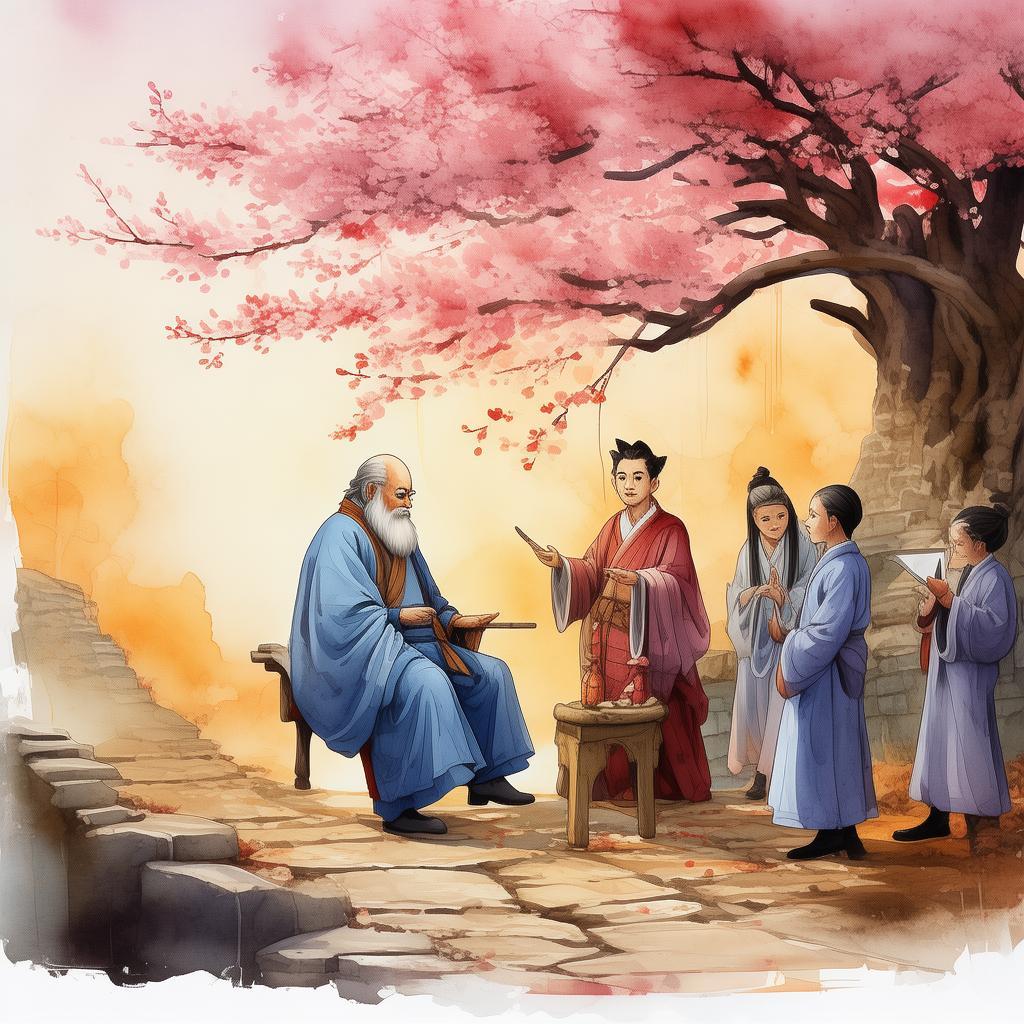The Enchanted Labyrinth of Ten Thousand Proverbs: The Quest for Wisdom
In the ancient kingdom of Lingnan, nestled between the misty mountains and the serene rivers, there lived a young scholar named Ming. He was known throughout the land for his quick wit and insatiable thirst for knowledge. Ming had always been fascinated by the wisdom encoded in the proverbs of his people, those pithy sayings that held the secrets of life and the universe. But one proverb in particular captivated his imagination:
"The Enchanted Labyrinth of Ten Thousand Proverbs: Only the wise may enter, and only the wiser may leave."
Ming was determined to uncover the meaning behind this enigmatic proverb, and he believed that the path to his enlightenment lay within the labyrinth. With his heart brimming with curiosity and his mind filled with resolve, he set out on a quest that would change his life forever.
The labyrinth was said to be hidden in the heart of the Forbidden Forest, a place so dense with ancient trees that even the most seasoned travelers had never returned. Ming, however, was not one to shy away from a challenge. He gathered his most precious belongings—a scroll of proverbs, a lantern to light his way, and a small, ornate sword that had been passed down through generations of his family.
As he ventured deeper into the forest, the air grew cooler, and the shadows longer. The trees seemed to whisper secrets to one another, their leaves rustling with ancient knowledge. Ming pressed on, his lantern casting a flickering light on the path before him. He was not alone; he felt the presence of the labyrinth's guardian, a mystical creature known as the Proverbial Serpent, that slumbered at the heart of the maze.
The first test came in the form of a riddle. The Serpent spoke, its voice like the rustling of leaves in the wind:
"I am not alive, yet I grow; I don't have lungs, but I need air; I don't have a mouth, yet water kills me. What am I?"
Ming pondered the riddle, drawing on the proverbs he had memorized. It was not long before he realized the answer: "Fire." The Serpent's eyes twinkled with approval, and the path forward opened.
He continued through the labyrinth, encountering more challenges. A room filled with mirrors tested his self-awareness, a room of puzzles required him to think creatively, and a room of illusions forced him to see the truth. At each turn, Ming deciphered a new proverb, each one enlightening him further and guiding him closer to the center of the labyrinth.
As he neared the heart of the maze, the proverbs became more profound, each one a stepping stone on his path to wisdom. One proverb in particular spoke to his soul:
"True wisdom is not the accumulation of knowledge but the application of wisdom."
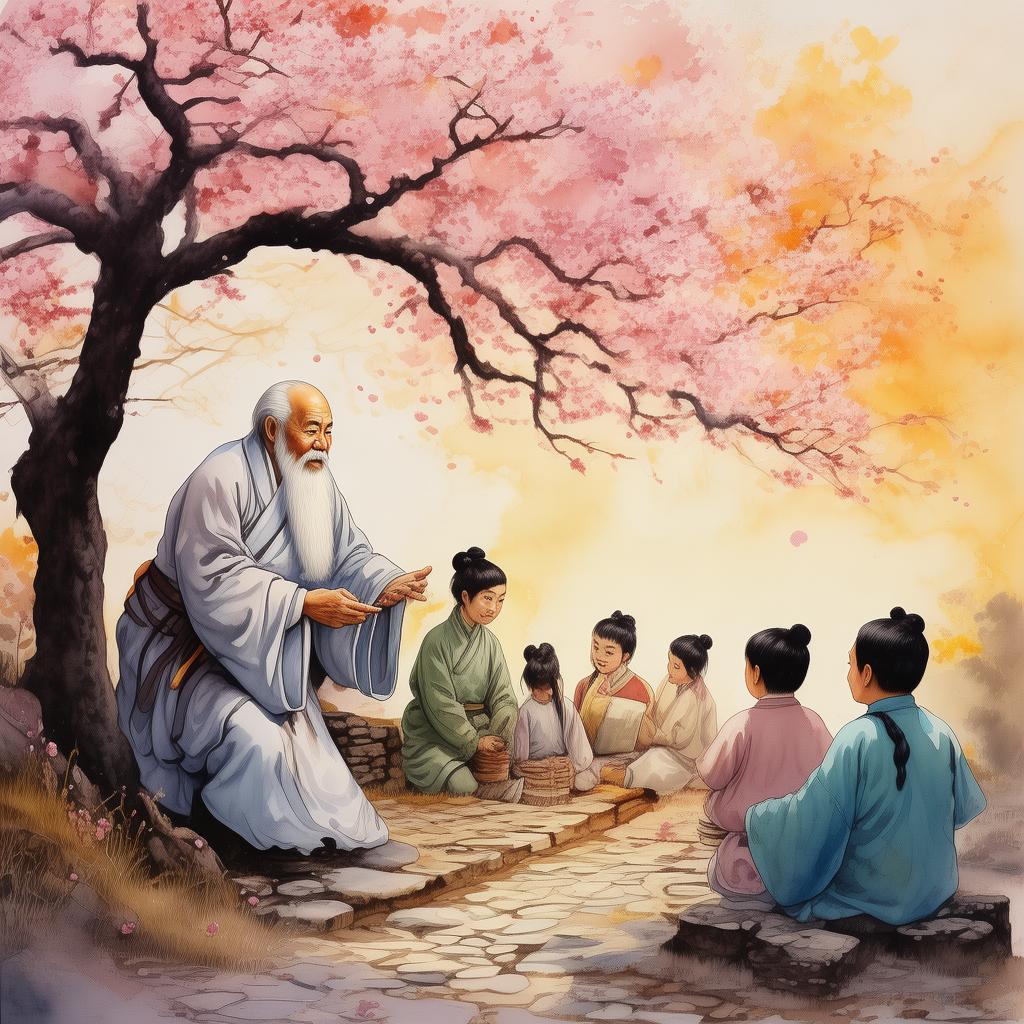
In the center of the labyrinth stood an ancient book, bound in the skin of a dragon and inscribed with characters that glowed with an ethereal light. This was the source of the labyrinth's power, the repository of all the proverbs of the kingdom.
Ming approached the book, his heart pounding with anticipation. He opened it, and the proverbs began to dance before his eyes, each one a reflection of his own journey. He realized that the true wisdom was not in the book itself, but in his own understanding and application of the proverbs.
The Proverbial Serpent approached Ming once more. "You have proven yourself worthy," it said. "You have entered the labyrinth as a seeker of knowledge, and you have emerged as a wise individual. Go forth and share the wisdom you have gained."
With a newfound sense of purpose, Ming left the labyrinth. He returned to his kingdom, not as a scholar who had read a thousand books, but as a wise man who had lived a thousand lives. He shared his experiences and the proverbs he had learned, and the kingdom flourished as never before.
The story of Ming's quest for wisdom spread far and wide, inspiring many to seek their own paths to enlightenment. And so, the proverb "The Enchanted Labyrinth of Ten Thousand Proverbs: Only the wise may enter, and only the wiser may leave" became a testament to the power of self-discovery and the enduring nature of wisdom.
✨ Original Statement ✨
All articles published on this website (including but not limited to text, images, videos, and other content) are original or authorized for reposting and are protected by relevant laws. Without the explicit written permission of this website, no individual or organization may copy, modify, repost, or use the content for commercial purposes.
If you need to quote or cooperate, please contact this site for authorization. We reserve the right to pursue legal responsibility for any unauthorized use.
Hereby declared.
